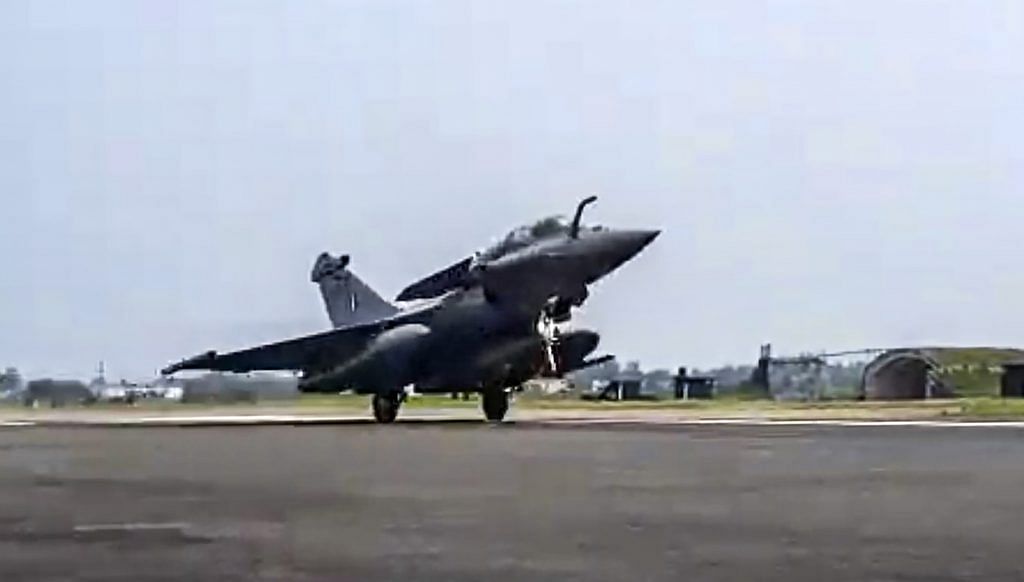Over the last one month, a number of contracts under the fast track procurement route have been inked by the defence ministry as part of the much-needed modernisation of the three Services. Most of these contracts, each valuing between Rs 100 crore and Rs 150 crore, are for drones, loitering munitions, counter-drone systems and special sights.
Though the cost involved is not huge, considering the billion-dollar deals that the defence industry is known for, these contracts bring about a welcome change — not just because they have been inked faster but also because they are the starting point for introduction of niche technology for modern warfare.
Another welcome change is that all these contracts have gone to Indian startups and or India-based joint ventures between a local firm and a foreign Original Equipment Manufacturer (OEM).
Besides these small contracts, a big contract has also been cleared. The Cabinet Committee on Security (CCS) Wednesday cleared the $3-billion-deal for procuring 56 C-295MW transport aircraft for the Indian Air Force (IAF). The aircraft that will be manufactured in India jointly by Airbus and Tata, will replace the ageing IAF fleet of Avro 748 transport aircraft that first flew in 1961.
If we were to name two big defence deals in the recent past, they would be the S-400 air defence system purchase from Russia, and Rafale.
A common link between all the contracts mentioned above is out-of-box thinking. Each deal has been successful only because it was made through unconventional means, circumventing the long and tedious defence procurement processes known for facilitating delays.
Also read: Modi govt okays 6 more ‘eyes in the sky’ for IAF, DRDO project to cost Rs 11,000 crore
Small revolution in defence procurement
The genesis of the recent contracts given to Indian startups for drones by the armed forces can be traced back to a 2018 competition organised by the IAF — Mehar Baba Swarm Drone Competition. It was unique because the IAF had said the winners could bag a defence contract for swarm drones worth about Rs 100 crore.
This procurement route bypassed the conventional process of issuing Requests for Proposals (RFP), conducting trials, cost negotiation and finally contract signing. The IAF had used the Buy Indian (designed, developed and manufactured) category that was introduced in the Defence Procurement Procedure 2016. This was also unconventional because the IAF was handholding the firms and extending help in raising the bar in every round.
The end result was that two of the five firms that topped the competition – Bengaluru-based NewSpace Research and Tech, and Noida-based Raphe mPhibr Pvt Ltd — bagged contracts from the Army.
While Raphe along with NewSpace got contract for swarm drones, the former also bagged two separate contracts from the Army for supplying 48 Medium Altitude Logistics Drones and one from the Navy for 10 High Endurance payload carrying drones.
Now the two manufacturers, along with three others who were part of the top five — Veda Defence Systems Pvt Ltd, Dhaksha Unmanned Systems Pvt Ltd and Flaire Unmanned Systems Pvt Ltd — will soon be competing for a larger IAF contract.
Similarly, the deals for S-400, Rafale and the C-295 were also unconventional. In the case of C-295, it will be the first time when local private industry would be making a military plane in India. The fact that the cost negotiations committee (CNC) was headed by an IAF officer, unlike a bureaucrat from the defence ministry, also added to the uniqueness of the deal. Similarly, the CNCs for both the S-400 and the Rafale were also led by IAF officers. The net result was that decisions were taken faster because the officers knew how critical the systems were.
With the original procurement process hanging in balance, Prime Minister Narendra Modi decided to go in for the purchase of 36 Rafale jets rather than just waiting endlessly for the bigger deal to happen. His decision came under severe criticism. But then the IAF was happy.
Even in the case of the long pending deal with Russia to jointly manufacture AK-203 rifles in India, a non-conventional approach is being attempted. Major General Sanjeev Sengar has been appointed as CEO for four years, of the rifle factory in Amethi. This is the first time in decades that a uniformed officer will head an ordnance factory. This move was initiated because the Army had concerns regarding the quality and delivery of products from ordnance factories.
The defence sector needs more such out-of-the-box thinking because India’s forces are in desperate need for modernisation and faster procurement. To circumvent the long delays, the government has now given more autonomy to the Service chiefs for procurement, both through capital as well as revenue route. But then these are for smaller deals and stop gap arrangements.
What is needed is the will to think out of the box and the will to take decisions on a regular basis. As Army chief Gen M. M. Naravne said, India needs revolution in bureaucratic affairs.
Views are personal.
(Edited by Anurag Chaubey)
